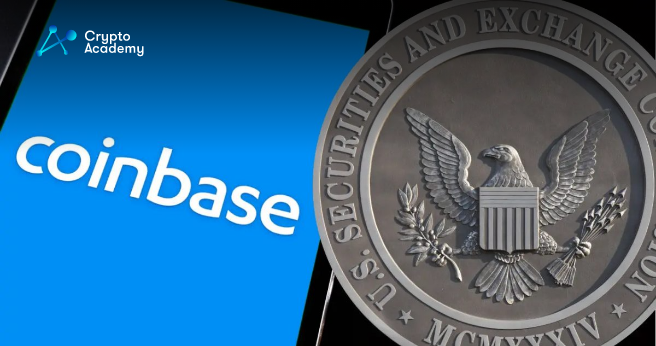The SEC defends its crypto regulation strategy amid strong criticism from Coinbase and others seeking clearer guidelines.
In a recent public response, the U.S. Securities and Exchange Commission (SEC) defended its approach to regulation and enforcement within the cryptocurrency sector. This followed criticism from industry stakeholders including Coinbase Global Inc., a leading cryptocurrency exchange, which had accused the SEC of delaying formal rulemaking for digital assets. The SEC’s position, outlined in an appellate brief, essentially argues for the continuation of individual enforcement actions.
Despite the SEC’s detailed response, crypto industry critics remain dissatisfied. They view the brief as reinforcement of their belief that the SEC lacks in providing clear guidelines to legitimate crypto businesses. These businesses, eager to comply with U.S. regulatory standards, need clarity that the SEC seems hesitant to provide.
Crypto Industry Moving Ahead Regardless
Kayvan Sadeghi of Jenner & Block, representing the Crypto Council for Innovation, stated that the crypto industry’s global progression isn’t reliant on the SEC’s stance. The implication is that U.S. regulators must decide their course of action without delay.
Last month, Coinbase embarked on an unprecedented legal action, anticipating an imminent lawsuit from the SEC. The exchange appealed to the 3rd U.S. Circuit Court of Appeals, urging the SEC to respond to their petition from July 2022. The petition seeks the proposal and adoption of rules governing the regulation of securities offered and traded digitally.
Coinbase’s Allegations Against SEC
Coinbase claims the SEC is intentionally avoiding the rulemaking process they requested, describing the SEC’s lack of response as an “unreasonable” delay. They believe the SEC is avoiding judicial scrutiny by favoring enforcement actions over formal rulemaking.
This sentiment is echoed by entities like the Crypto Council for Innovation, investment firm Paradigm Operations LP, and public interest group Investor Choice Advocates Network. The U.S. Chamber of Commerce also joined the chorus, arguing that SEC’s inaction is hampering innovation in a trillion-dollar industry.
SEC’s Position On Rulemaking and Enforcement
According to the SEC, Coinbase’s allegations are misguided. The agency hasn’t “vetoed” Coinbase’s petition but is rather conducting thorough analyses of potential crypto regulation. The SEC has proposed some new rules and argues there’s no statutory deadline for responding to rulemaking petitions. It believes that a months-long wait does not warrant the exceptional relief sought by Coinbase.
The SEC also refutes the notion that it should halt enforcement actions until it has clarified which crypto assets qualify as securities. The agency’s mandate includes enforcing existing securities laws while considering additional rules and regulations. It believes its enforcement actions, including those involving Coinbase, invite judicial scrutiny.
Coinbase’s Reaction to SEC’s Response
Coinbase’s Chief Legal Officer, Paul Grewal, reacted to the SEC’s brief, expressing concerns about a lengthy timeline for regulatory clarity. Coinbase’s supporters also weighed in, noting that the SEC’s obligation extends beyond merely considering rulemaking petitions. Check this thread for more:
Industry stakeholders, including the U.S. Chamber’s Institute for Legal Reform, demand guidance and certainty from regulators. Moreover, they argue that the SEC’s reluctance to act, preferring regulation through enforcement, leads to significant economic harm.
Enforcement Actions and Crypto Regulations
Lawyers for the Crypto Council, Sadeghi and Michelle Kallen of Jenner, pointed out a significant flaw in the SEC’s strategy. They claimed that the SEC’s enforcement actions have been predominantly against entities issuing crypto tokens rather than those involved in secondary trading of the underlying digital assets.
The SEC’s enforcement strategy, they argue, hasn’t provided the industry with clear guidelines on whether the underlying crypto tokens are securities or how they could comply with existing securities regulations. Hence, the lack of a clear path leaves even the “good actors” in the industry vulnerable to SEC enforcement actions.
While the SEC appears unbothered by criticisms, opponents insist that the SEC is undermining its role in protecting investors in a trillion-dollar industry. If the SEC continues on its current course, they warn, the industry may be forced to grow outside of the U.S., leaving American investors and businesses at a disadvantage.

